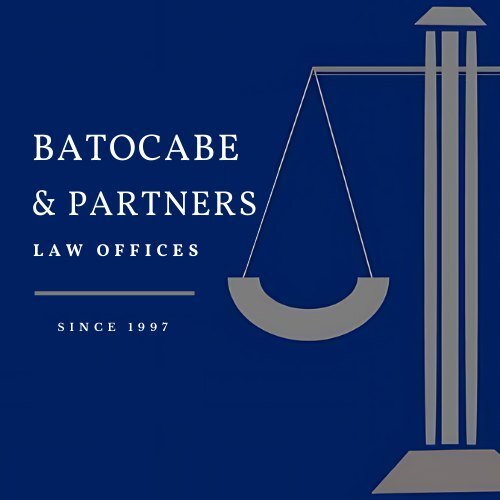Best Retirement Lawyers in Pasig
Share your needs with us, get contacted by law firms.
Free. Takes 2 min.
List of the best lawyers in Pasig, Philippines
About Retirement Law in Pasig, Philippines
Retirement in Pasig, Philippines, is governed by national laws that aim to ensure the well-being and financial security of retirees. The city of Pasig, part of Metro Manila, offers a range of resources and services for retirees and those preparing for retirement. The focus is typically on ensuring retirees have access to pensions, social security, and proper healthcare services, aligning with the broader national framework established by the Philippine Retirement Authority and other government bodies.
Why You May Need a Lawyer
Retirement planning and execution can involve complex legal and financial situations. People in Pasig may require legal assistance in instances such as:
- Understanding and claiming retirement benefits and pensions.
- Navigating issues related to social security entitlements.
- Handling disputes over retirement fund contributions.
- Ensuring compliance with laws applicable to transitioning from employment to retirement.
- Drafting wills or setting up trusts to manage assets post-retirement.
- Safeguarding rights if retirement benefits are challenged or delayed.
Local Laws Overview
Retirement in Pasig, as with the rest of the Philippines, is primarily governed by the Labor Code of the Philippines and relevant legislative provisions such as the Republic Act No. 7641, known as the Retirement Pay Law. Key aspects include:
- Mandatory retirement and optional retirement policies, with specific age requirements as defined by law.
- Calculation of retirement pay, generally equivalent to at least one-half month salary for every year of service.
- Eligibility criteria for retirement benefits, often determined by age and years of service.
- Regulations around the Social Security System (SSS) benefits for private sector retirees.
- Provisions for government employees under the Government Service Insurance System (GSIS).
Frequently Asked Questions
What are the age requirements for retirement in the Philippines?
The mandatory retirement age in the Philippines is generally 65, while optional retirement can be availed starting at the age of 60, depending on company policy or negotiated agreements.
How is retirement pay calculated?
Retirement pay is typically calculated at one-half month salary for every year of service. The components of the one-half month salary include 15 days' salary plus the 5 days of service incentive leave and 1/12 of the 13th-month pay.
Can retirement benefits be claimed earlier if my employment is terminated?
If an employee is separated from employment through no fault of their own, they may still qualify for retirement pay as stipulated in their employment contract or company policy, subject to legal provisions.
What happens to my pension if I am re-employed?
If you are re-employed after being retired, typically, your pension may be suspended depending on the conditions set forth by the SSS or GSIS. It is important to review your specific case with these institutions or seek legal advice.
Are expatriates eligible for retirement benefits in the Philippines?
Expatriates can be eligible for retirement benefits if they have contributed to the SSS during their employment in the Philippines. They can also explore the Special Resident Retiree’s Visa (SRRV) program offered by the Philippine Retirement Authority.
What is the SSS retirement benefit?
The SSS retirement benefit is a monthly pension or lump-sum amount granted to qualified members who have reached the retirement age and meet the required number of monthly contributions.
How do I apply for GSIS retirement benefits?
Eligible government employees must submit a retirement application through their respective agencies or directly to the GSIS, accompanied by required documents such as birth certificates and employment records.
Can I receive both SSS and GSIS pensions?
No, generally, individuals cannot receive pensions from both the SSS and GSIS simultaneously due to the distinct nature of contributions and entitlements.
What role does the Philippine Retirement Authority play?
The Philippine Retirement Authority primarily manages benefits programs like the SRRV for foreign retirees and collaborates on initiatives to enhance the retirement industry's environment.
What should I do if I have a dispute over my retirement benefit?
Seek legal assistance to understand your rights and remedies. It’s advisable to document all relevant transactions and communications, and consult with a lawyer specializing in retirement law or employment disputes.
Additional Resources
Several resources can provide further assistance on retirement-related issues in Pasig:
- Philippine Retirement Authority - Information on retirement visas and benefits.
- Social Security System (SSS) - Guidance on retirement benefits and claims.
- Government Service Insurance System (GSIS) - Support for government employees regarding retirement.
- Department of Labor and Employment (DOLE) - Further information on employment law and retirement rights.
Next Steps
If you need legal assistance with retirement in Pasig, Philippines, consider the following steps:
- Consult a Lawyer: Engage with a legal professional specializing in retirement or employment law to discuss your specific situation.
- Gather Documentation: Collect all necessary records such as employment contracts, pay slips, and communications related to your retirement benefits.
- Use Government Resources: Reach out to the SSS or GSIS for official guidance and clarification where needed.
- Stay Informed: Regularly update yourself on any changes in retirement law or benefits procedures by following official announcements and publications.
Lawzana helps you find the best lawyers and law firms in Pasig through a curated and pre-screened list of qualified legal professionals. Our platform offers rankings and detailed profiles of attorneys and law firms, allowing you to compare based on practice areas, including Retirement, experience, and client feedback.
Each profile includes a description of the firm's areas of practice, client reviews, team members and partners, year of establishment, spoken languages, office locations, contact information, social media presence, and any published articles or resources. Most firms on our platform speak English and are experienced in both local and international legal matters.
Get a quote from top-rated law firms in Pasig, Philippines — quickly, securely, and without unnecessary hassle.
Disclaimer:
The information provided on this page is for general informational purposes only and does not constitute legal advice. While we strive to ensure the accuracy and relevance of the content, legal information may change over time, and interpretations of the law can vary. You should always consult with a qualified legal professional for advice specific to your situation.
We disclaim all liability for actions taken or not taken based on the content of this page. If you believe any information is incorrect or outdated, please contact us, and we will review and update it where appropriate.














